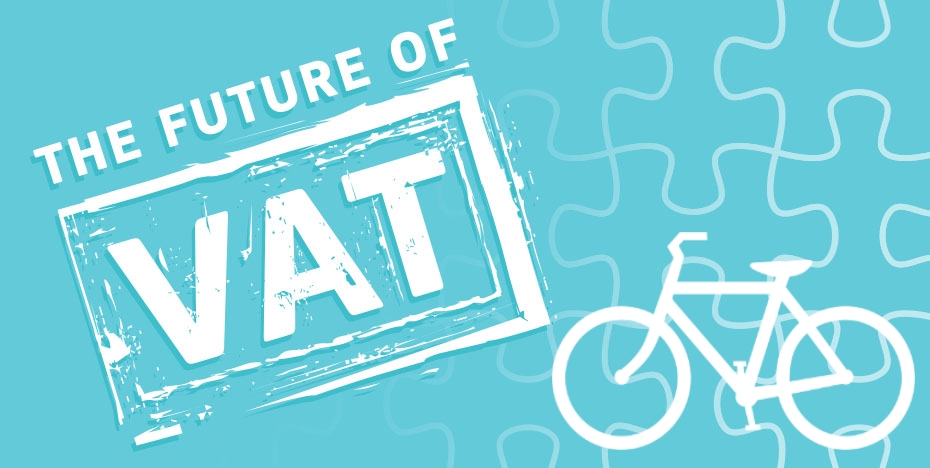
Will e-bikes get run over by EU VAT reform?
The European Commission has published a proposal for reforming the EU VAT system. The good news: Sales of conventional bikes could benefit from reduced or zero VAT in the future. The bad news: E-bikes are excluded and Member States would be obliged to apply standard VAT rates on them.
In its recent proposal for reforming the EU’s VAT (Value Added Tax) rates system, the Commission has laid out its plans to give Member States more flexibility in setting VAT rates. In a nutshell, Member States, while having to respect a weighted average VAT rate of 12%, will be able to set reduced or even zero VAT rates on all goods, except those figuring on a specific list. For the goods on this list, the standard VAT rate of at least 15% has to be applied.
Amongst others, standard VAT rates would have to be applied to the sales, hire, maintenance and repair of means of transport and fuel oil and gas. The only means of transport exempted from this obligation would be non-motorised bicycles, baby carriages and invalid carriages, and cars without a combustion engine, meaning electric cars or hydrogen cars. This means that bikes without electric pedal assistance, but also electric cars, could benefit from reduced or zero VAT rates, while Member States would be obliged to apply standard VAT rates on electric bikes.
Compared to the current regime, this means an improvement for bikes without pedal assistance. At the moment, Member States are not allowed to apply reduced VAT rates to the sales of any type of bike. However, ECF considers that the possibility to apply reduced rates needs to be extended to electric bikes under the reformed VAT regime. Electric bikes are currently the most sold electric vehicles in the EU by far, and present numerous benefits in terms of making cycling more accessible e.g. in hilly areas, for longer commuting distances, or for senior citizens.
What is more, a number of Member States, such as Sweden, France, or Austria, have introduced purchase premiums schemes to increase the market uptake of electric bikes (see ECF Report “Electromobility for all”). Most recently, the Transport Commission of the Spanish Parliament has voted on a motion calling for the introduction of various fiscal incentives for cycling, including purchase premiums for electric bikes and reduced VAT rates for both conventional and electric bikes. Being able to apply reduced or zero VAT rates could further bolster these policy measures at national level, while the current proposal puts a break on them.
In the upcoming months, ECF will work with its partners to convince the EU institutions that the definitive EU VAT regime should be coherent when it comes to promoting sustainable mobility, and should therefore include the possibility to apply reduced VAT rates on the sales of e-bikes. Since taxation issues are an exclusive competence of the Member States represented in the Council of the EU, this will involve work at the national level. We would therefore like to ask interested organisations and companies to get in touch with us to stay informed about the next steps.
Regions:
News category:
Network/Project Involved:
Topics:
Contact the author
Recent news!
Upcoming events
Contact Us
Avenue des Arts, 7-8
Postal address: Rue de la Charité, 22
1210 Brussels, Belgium









